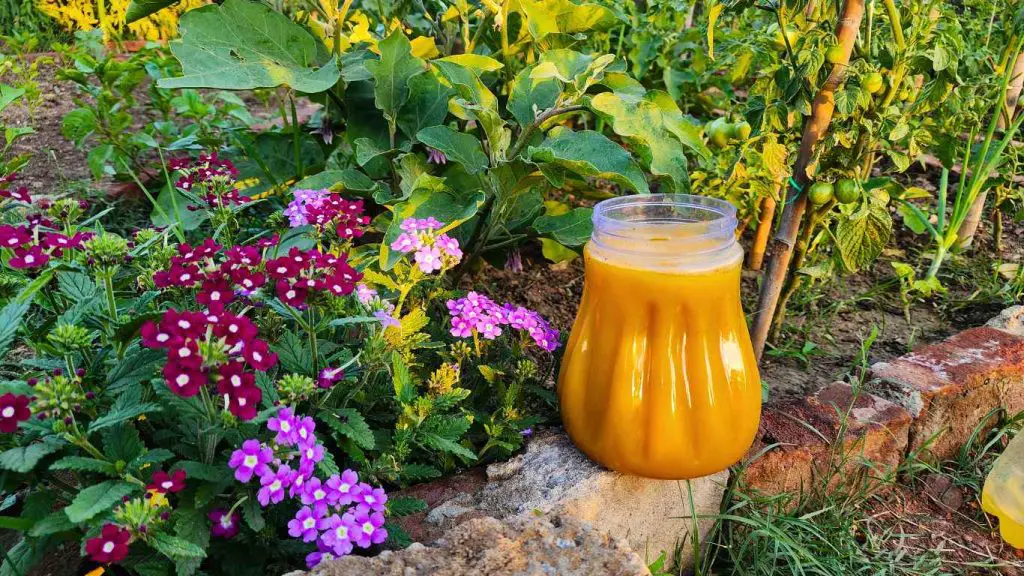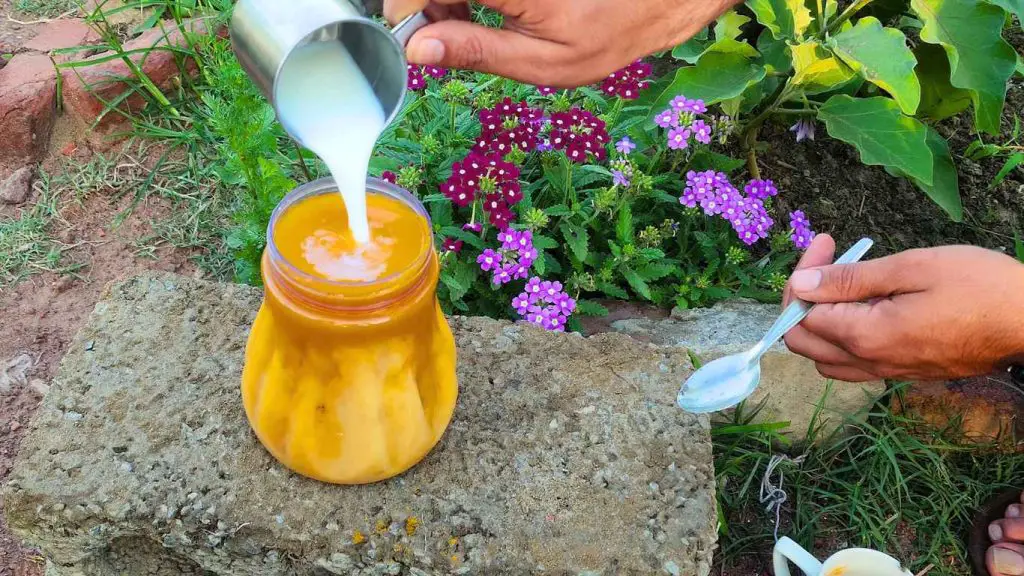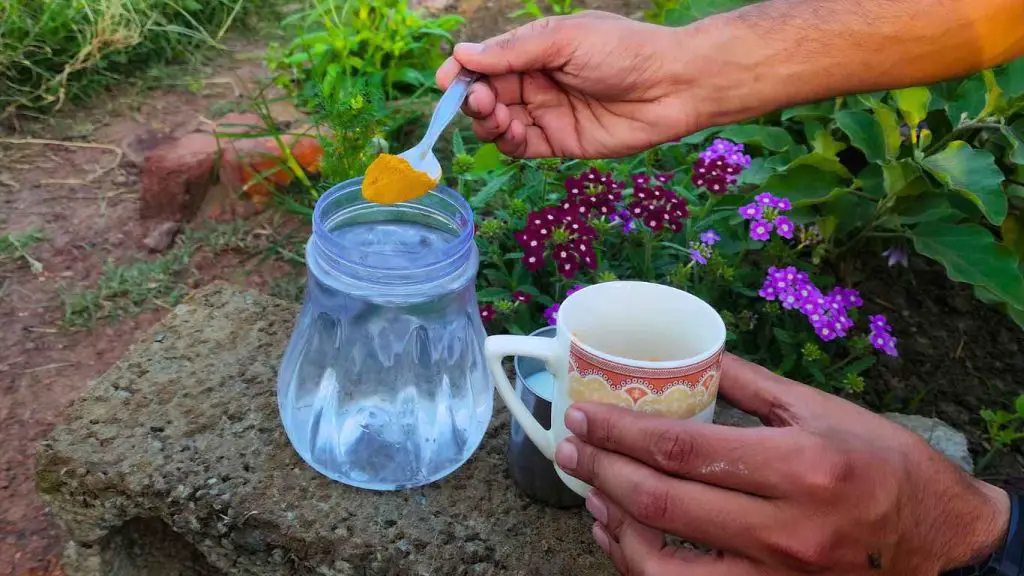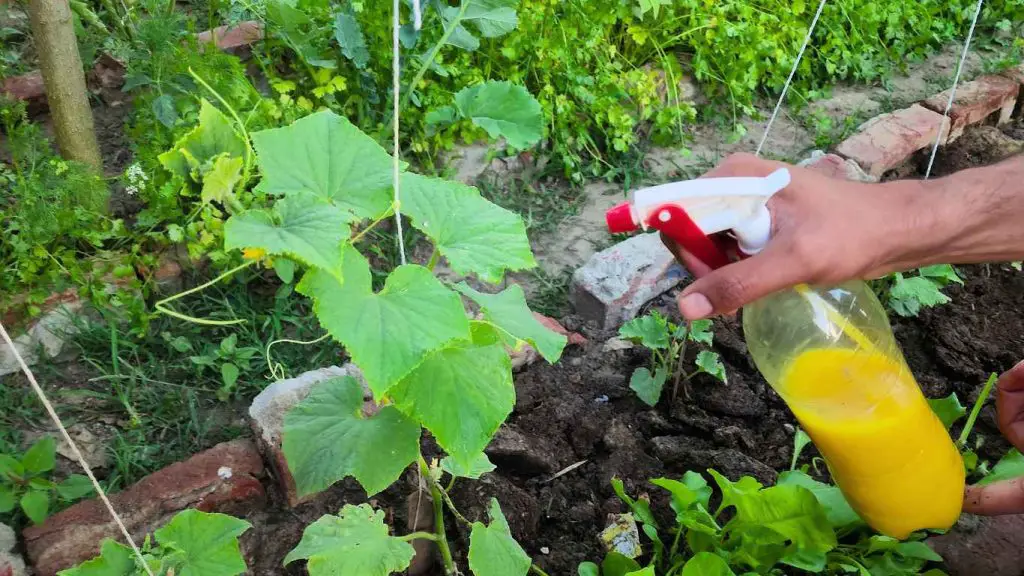I’m going to give you a very simple recipe for a natural remedy that will help your garden plants grow faster, like tomatoes and cucumbers. This cure not only makes your vegetables grow better, but it also keeps your flowers from getting sick.

Also, guess what? Two everyday things are all you need to make it work.
The first ingredient is turmeric.
Turmeric has been used for thousands of years in many parts of the world for both cooking and medicine. But did you know you can use turmeric in the garden too? Curcumin is a chemical that is found in turmeric that kills fungi and bugs naturally. So try turmeric instead of using chemical fungicides and pesticides that are bad for the environment in many ways. Here are some of the best ways to use turmeric in the garden.
- While turmeric is good for us, ants and other pests hate it. Pests, especially ants, will stay away from plants if you sprinkle turmeric powder around the base and leaves. Remember that the key to using organic products is to be patient.
- Another amazing thing about turmeric powder for plants is that it can keep them from getting sick. Curcumin is the active ingredient in turmeric. It is very good at killing bacteria and fungi, so it can be used to fight harmful pathogens in the garden.
- Strong, healthy roots are needed for plants to grow and take in nutrients. There is a natural root growth stimulator in turmeric powder that helps plants make strong, long root networks. Turmeric has curcumin, which makes plant growth hormones come out. These hormones help lateral roots grow and make it easier for plants to take in nutrients.
- Turmeric is known for its ability to heal wounds. Plants can also get hurt by things like being pruned, having branches broken, being harmed by animals, and being grafted. Put on a thick paste, and then wait for them to heal.

Ingredient two is milk.
Another surprising thing in this remedy is milk. Milk has many nutrients that are good for plants, like calcium and proteins. When milk is put on plant leaves, it forms a thin film that can help keep bugs and diseases away.
Being an adhesive, it keeps the medicine on the plant’s surface and doesn’t wash off easily. This film also makes it easier for good things to get into the plant’s tissues, which improves its health and makes it less likely to get diseases.
Here are a few more benefits of milk for your garden:
- Some B vitamins and calcium in milk can be taken in and used by plants. Calcium is an important mineral for plants to take in because it helps them use other minerals and vitamins. This is good because it helps the plant grow and stops blossom end rot, which can happen when it doesn’t get enough calcium.
- Putting milk on gardening tools can make them clean. A study from Ohio State University discovered that to clean pruners, dipping them in a solution of dry milk and water works just as well as dipping them in bleach. Also, gardeners whose skin comes into contact with the solution are safer when they use milk. It was non-fat dried milk that the researchers used, but maybe regular milk will work too!
- In the summer, spray leaves with a mixture of powdered milk and water to keep mildew away. This mix works best on the powdery gray spots that show up on the leaves of fruit plants as they grow. You can also use milk that is easy to drink. Mix the milk with water and spray it on plants to help them fight mildew in the summer.
- After some positive reports showed up online, the practice of using milk to improve the health of the soil started up again. Bridgett Jamison Hilshey and Sid Bosworth of the University of Vermont Extension did research that showed pastures that were sprayed with cow milk grew well and stayed disease-free, even when seasonal pathogens and destructive soil insects were present.
Process Of Making The Remedy

Preparation Process: To start, dissolve two teaspoons of powdered turmeric in one liter of heated water. The essential component in this recipe is turmeric, a naturally occurring antiseptic and anti-inflammatory. The turmeric dissolves more easily in the hot water, which guarantees a uniform blend.
Addition of Milk: Before adding the milk, make sure the turmeric is completely mixed in. The active compounds in turmeric are better absorbed by the body when they are mixed with milk. This addition also gives the plants important nutrients that improve their health and strength.
Thorough Mixing: To guarantee homogeneity, the solution must be well mixed. By ensuring that the milk and turmeric are dispersed equally throughout the water, this step maximizes their potency when applied to the plants. All treated areas will benefit consistently from a well-mixed solution.
Cooling Period: Allow the mixture to cool fully after mixing. This cool-down period is crucial because it gives the milk and turmeric time to further permeate the water. During this time, the milk completely incorporated into the solution, maximizing its potency, and the active ingredients in turmeric spread more evenly.
Straining Before Application: To get rid of any leftover milk or undissolved turmeric, strain the mixture before using. By taking this precaution, you can avoid clogging the sprayers and guarantee even and seamless plant coverage when applying the material. A transparent solution ensures that the misting apparatus runs smoothly and evenly distributes the treatment throughout the plant.
How To Use?

The prepared remedy protects a variety of plants, such as geraniums, tomatoes, cucumbers, roses, and hydrangeas. Its wide range of coverage guarantees that different garden favorites gain from its protective attributes.
The solution forms a barrier that protects the leaves from disease and pests when sprayed on them. It serves as a first line of defense by creating this barrier, which stops common problems like fungus infections, aphids, and other dangerous invaders from harming the plants.
The remedy must be applied frequently to keep the plants healthy and vigorous. Gardeners can guarantee that their plants are continuously protected and can flourish all through the growing season by following a regular spraying schedule.
The treatment promotes continuous growth and development by protecting the leaves and stems from illnesses and pests. This produces more vigorous, healthier plants, which in turn produce a higher quality crop of fruits, vegetables, and flowers.
Gardeners can reap long-term benefits for the general health and productivity of their garden by incorporating the remedy into their routine plant care regimen. Plants that receive consistent protection are hardier and less prone to failure, which enhances the growth and well-being of the garden environment.
